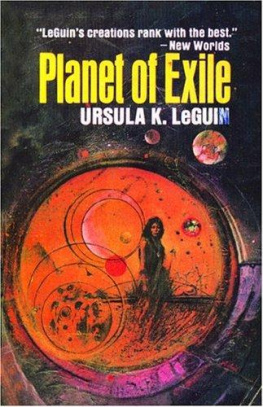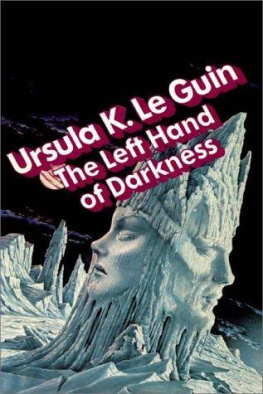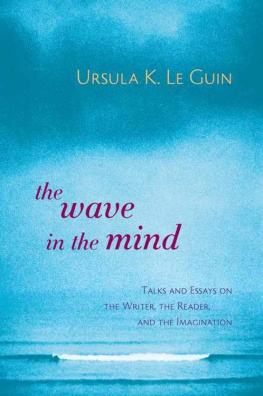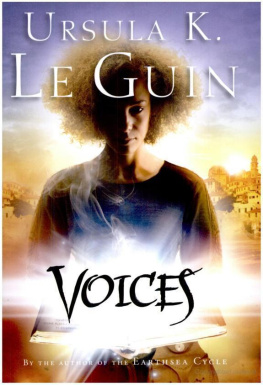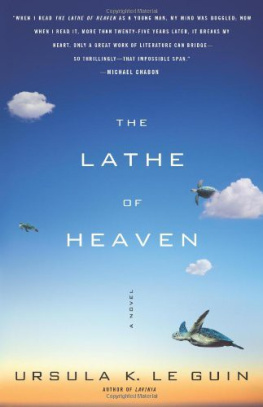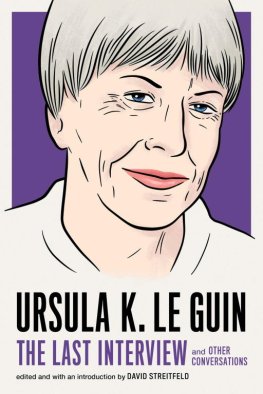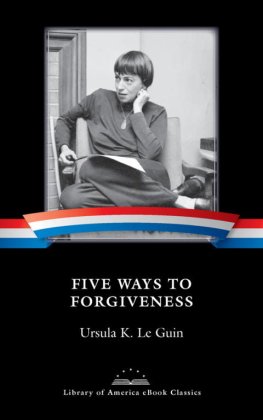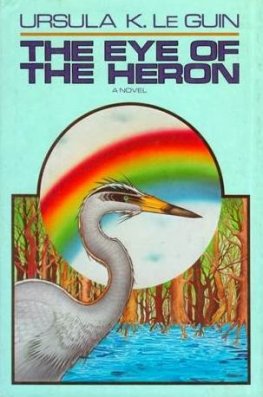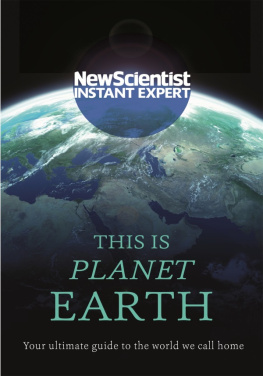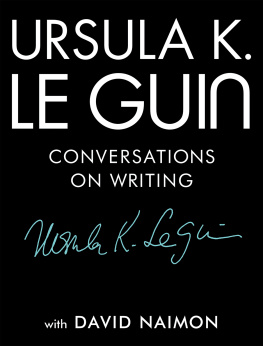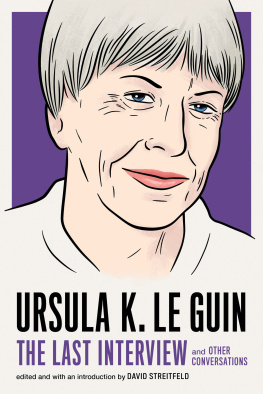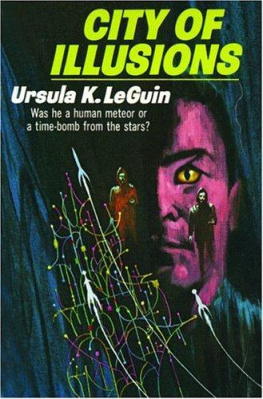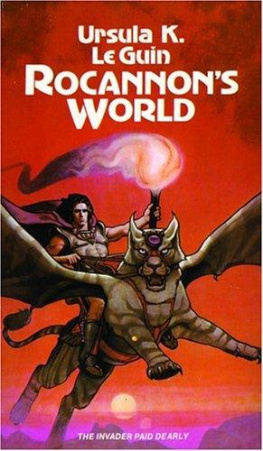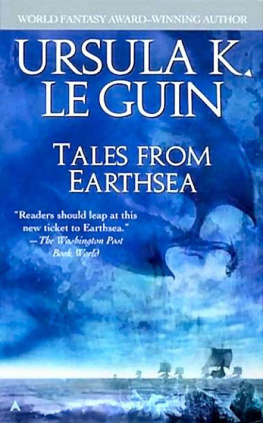Planet of Exile
by Ursula Kroeber Le Guin
The Ekumen Book 2
TABLE OF CONTENTS
IN THE TENTH YEAR-THE DAY OF JUDGMENT
The Earth colony of Landin had been stranded on distant Eltanin for ten years. But ten of Eltanin's years were six hundred Terrestrial years, and the lonely and dwindling human settlement was beginning to feel the strain.
Every winter-a season which lasted for fifteen of our years-the Earthman had neighbors. These were the humanoid hilfs, a nomadic people who only settled down when they burrowed in for the cruel long cold spell. Yet the hilfs feared the Earthmen, whom they thought of as witches and called the farborns. And their fear kept the lost colony lonely.
But hilfs and farborns had common enemies: the hordes of ravaging barbarians called Gaals and the eerie preying snowghouls. And in the terrible winter of the Tenth Year, the only hope of hilf and farborn was to join forces or be annihilated.
Chapter ONE: A Handful of Darkness
IN THE LAST days of the last moonphase of Autumn a wind blew from the northern ranges through the dying forests of Askatevar, a cold wind that smelled of smoke and snow. Slight and shadowy as a wild animal in her light furs, the girl Rolery slipped through the woods, through the storming of dead leaves, away from the walls that stone by stone were rising on the hillside of Tevar and from the busy fields of the last harvest. She went alone and no one called after her. She followed a faint path that led west, scored and rescored in grooves by the passing southward of the footroots, choked in places by fallen trunks or huge drifts of leaves.
Where the path forked at the foot of the Border Ridge she went on straight, but before she had gone ten steps she turned back quickly towards a pulsing rustle that approached from behind.
A runner came down the northward track, bare feet beating in the surf of leaves, the long string that tied his hair whipping behind him. From the north he came at a steady, pounding, lung-bursting pace, and never glanced at Rolery among the trees but pounded past and was gone. The wind blew him on his way to Tevar with his news-storm, disaster, winter, war... Incurious, Rolery turned and followed her own evasive path, which zigzagged upward among the great, dead, groaning trunks until at last on the ridgetop she saw sky break clear before her, and beneath the sky the sea.
The dead forest had been cleared from the west face of the ridge. Sitting in the shelter of a huge stump, she could look out on the remote and radiant west, the endless gray reaches of the tidal plain, and, a little below her and to the right, walled and red-roofed on its sea-cliffs, the city of the farborns.
High, bright-painted stone houses jumbled window below window and roof below roof down the slanting cliff-top to the brink. Outside the walls and beneath the cliffs where they ran lower south of the town were miles of pastureland and fields, all dyked and terraced, neat as patterned carpets. From the city wall at the brink of the cliff, over dykes and dunes and straight out over the beach and the slick-shining tidal sands for half a mile, striding on immense arches of stone, a causeway went, linking the city to a strange black island among the sands. A sea-stack, it jutted up black and black-shadowed from the sleek planes and shining levels of the sands, grim rock, obdurate, the top of it arched and towered, a carving more fantastic than even wind or sea could make. Was it a house, a statue, a fort, a funeral cairn? - What black skill had hollowed it out and built the incredible bridge, back in timepast when the farborns were mighty and made war? Rolery had never paid much heed to the vague tales of witchcraft that went with mention of the farborns, but now looking at that black place on the sands she saw that it was strange-the first thing truly strange to her that she had ever seen: built in a timepast that had nothing to do with her, by hands that were not kindred flesh and blood, imagined by alien minds. It was sinister, and it drew her. Fascinated, she watched a tiny figure that walked on that high causeway, dwarfed by its great length and height, a little dot or stroke of darkness creeping out to the black towers among the shining sands.
The wind here was less cold; sunlight shone through cloud-rack in the vast west, gliding the streets and roofs below her. The town drew her with its strangeness, and without pausing to summon up courage or decision, reckless, Rolery went lightly and quickly down the mountainside and entered the high gate.
Inside, she walked as light as ever, careless-willful, but that was mostly from pride: her heart beat hard as she followed the gray, perfectly flat stones of the alien street. She glanced from left to right, and right to left, hastily, at the tall houses all built above the ground, with sharp roofs, and windows of transparent stone-so that tale was true! -and at the narrow dirt-lots in front of some houses where bright-leaved kellem and hadun vines, crimson and orange, went climbing up the painted blue or green walls, vivid among all the gray and drab of the autumnal landscape. Near the eastern gate many of the houses stood empty, color stripping and scabbing from the stone, the glittering windows gone. But farther down the streets and steps the houses were lived in, and she began to pass farborns in the street.
They looked at her. She had heard that farborns would meet one's eyes straight on, but did not put the story to test. At least none of them stopped her; her clothing was not unlike theirs, and some of them, she saw in her quick flicking glances, were not very much darker-skinned than men. But by the faces that she did not look at she sensed the unearthly darkness of the eyes.
All at once the street she walked on ended in a broad open place, spacious and level, all gold-and-shadow-streaked by the westering sun. Four houses stood about this square, houses the size of little hills, fronted with great rows of arches and above these with alternate gray and transparent stones. Only four streets led into this square and each could be shut with a gate that swung from the walls of the four great houses; so the square was a fort within a fort or a town within a town. Above it all a piece of one building stuck straight up into the air and towered there, bright with sunlight.
It was a mighty place, but almost empty of people.
In one sandy corner of the square, itself large as a field, a few farborn boys were playing. Two youths were having a fierce and skillful wrestling match, and a bunch of younger boys in padded coats and caps were as fiercely practicing cut-and-thrust with wood swords. The wrestlers were wonderful to watch, weaving a slow dangerous dance about each other, then engaging with deft and sudden grace. Along with a couple of farborns, tall and silent in their furs, Rolery stood looking on. When all at once the bigger wrestler went sailing head over heels to land flat on his brawny back she gave a gasp that coincided with his, and then laughed with surprise and admiration. "Good throw, Jonkendy!" a farborn near her called out, and a woman on the far side of the arena clapped her hands. Oblivious, absorbed, the younger boys fought on, thrusting and whacking and parrying.
She had not known the witchfolk bred up warriors, or prized strength and skill. Though she had heard of their wrestling, she had always vaguely imagined them as hunched back and spiderlike in a gloomy den over a potter's wheel, making the delicate bits of pottery and clear-stone that found their way into the tents of mankind. And there were stories and rumors and scraps of tales; a hunter was "lucky as a farborn"; a certain kind of earth was called witch-ore because the witchfolk prized it and would trade for it. But scraps were all she knew. Since long before her birth the Men of Askatevar had roamed in the east and north of their range. She had never come with a harvest-load to the storerooms under Tevar Hill, so she had never been on this western border at all till this moonphase, when all the Men of the Range of Askatevar came together with their flocks and families to build the Winter City over the buried granaries. She knew nothing, really, about the alien race, and when she became aware that the winning wrestler, the slender youth called Jonkendy, was staring straight into her face, she turned her head away and drew back in fear and distaste.
Next page
